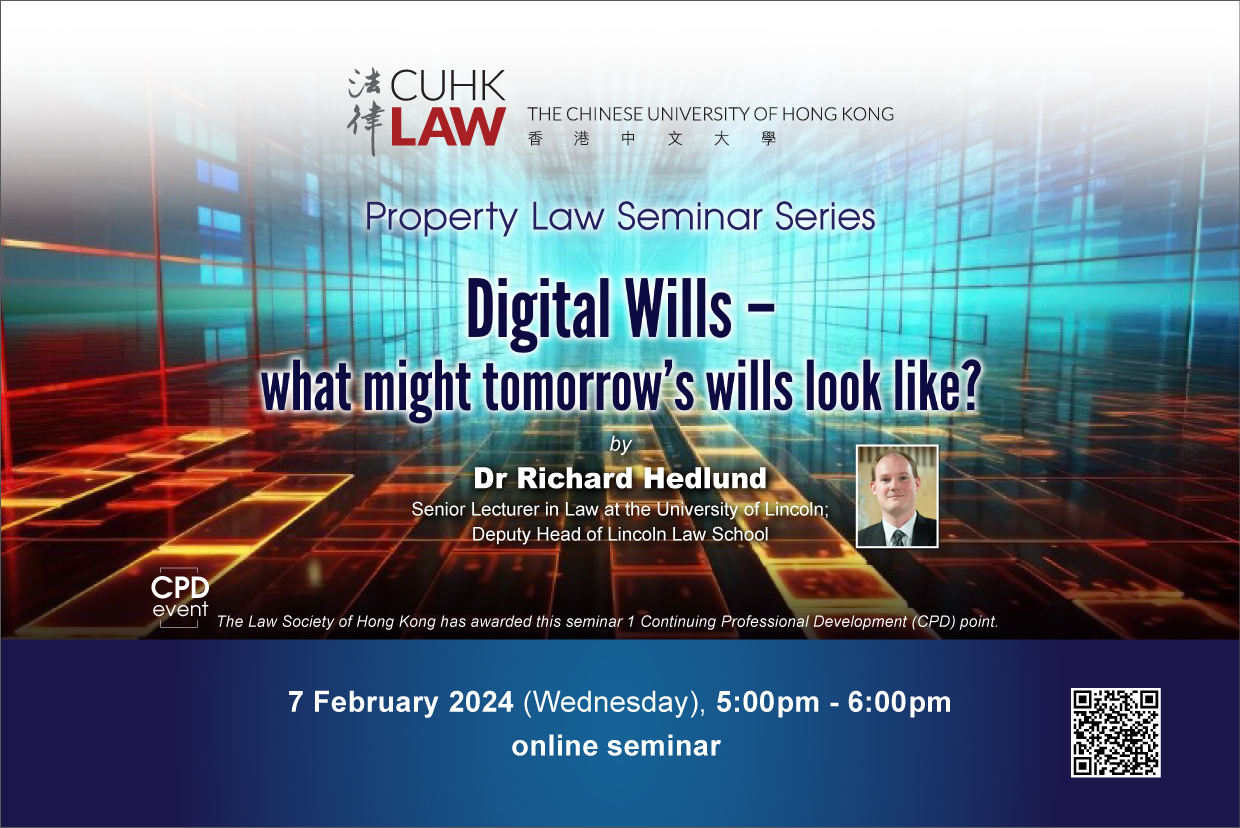Events
CUHK LAW Property Law Seminar Series – ‘Digital wills – what might tomorrow’s wills look like?’ by Dr Richard Hedlund
7 Feb 2024
5:00pm – 6:00pm (HKT)
Online via ZOOM
Dr Richard Hedlund, Senior Lecturer in Law at the University of Lincoln (UK) and the Deputy Head of Lincoln Law School
Dr Richard Hedlund is a Senior Lecturer in Law at the University of Lincoln (UK), where he is also the Deputy Head of Lincoln Law School. He has published extensively on matters relating to succession law, and is the author of The Law of Succession (2nd edition, Hall & Stott, 2021; 3rd edition forthcoming in 2024).
Rapid developments in technology has completely overhauled everyday life in the past two decades, moving everything from banking, to commerce, to entertainment, online. Everything, that is, except wills. In England and Hong Kong, a validly executed will must be written on paper, and signed by hand by the testator in the presence of two witnesses (Wills Ordinance, s 5(1)). Surely, the time has now come to change the law to allow for fully digital wills? Legislation to that effect has already been introduced in some US states, and in other common law jurisdictions, such as Australia, digital files can be probated using a dispensing power.
In Hong Kong, no formal decision has been made on whether s 5(2) of the Wills Ordinance can be used to probate a digital file (though the issue was discussed in the recent Court of First Instance decision in In the Estate of CHENG Wai Yee Shirley [2023] HKCFI 2822). In England, the Law Commission has just completed a consultation process on reforming the law on will-making, including considering the possibility of legislating for fully digital wills. This presentation will consider the challenges and opportunities that comes with allowing for digital wills – how can we best harness the full potential of modern technology; do we still need centuries old formality requirements; and how can we make will-making more accessible to all people?
Language: English
The Law Society of Hong Kong has awarded this seminar 1 Continuing Professional Development (CPD) point.


